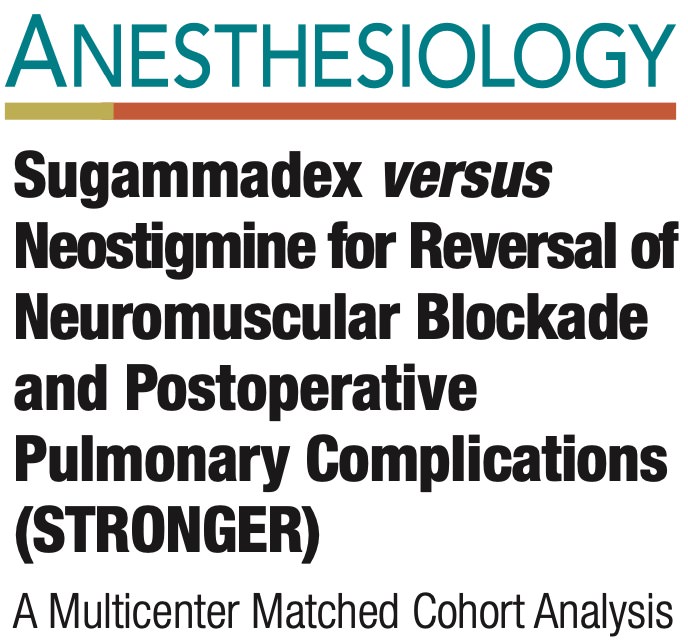Author: Rishi
RK.md
Postoperative pulmonary complications (PPCs) come in a wide variety of flavors ranging from atelectasis and pulmonary congestion to respiratory failure and pneumonia. Not only do certain surgeries (upper abdominal and thoracic), age, case duration, and patient comorbidities (renal failure, longstanding respiratory disease, etc.) confer a higher incidence of PPCs, but so does inadequately reversing neuromuscular blocking agents (NMBA) like rocuronium or vecuronium. This multicenter, observational matched-cohort study evaluated whether reversing with neostigmine (an acetylcholinesterase inhibitor) versus sugammadex (a cyclodextrin molecule) changed the risk of PPCs.
This study used a national registry of perioperative data with more emphasis placed on ICD 9/10 codes more clearly linked to PPCs (acute respiratory failure following trauma and surgery, acute pulmonary insufficiency following nonthoracic surgery, etc.); however, there is always room for error when dealing with codes.
Besides matching for more obvious variables like patient demographics and comorbidities/procedures associated with increased PPCs, the authors adjusted for other factors such as blood loss, opioids, vent driving pressure, and time from last NMBA dose. They excluded outpatient cases, emergencies, heart/lung/liver transplantation, ASA V/VI, renal failure (GFR < 30 cc/min), combined sugammadex/neostigmine administration, and institutions with a historically low use of sugammadex.
Ultimately, 22,856 sugammadex and neostigmine patients were matched to each other across 12 hospitals from 1/2014 to 8/2018. Multivariate analysis demonstrated a 30% reduction in composite PPCs primarily from a 47% and 55% relative reduction of pneumonia and respiratory failure, respectively.



Leave a Reply
You must be logged in to post a comment.